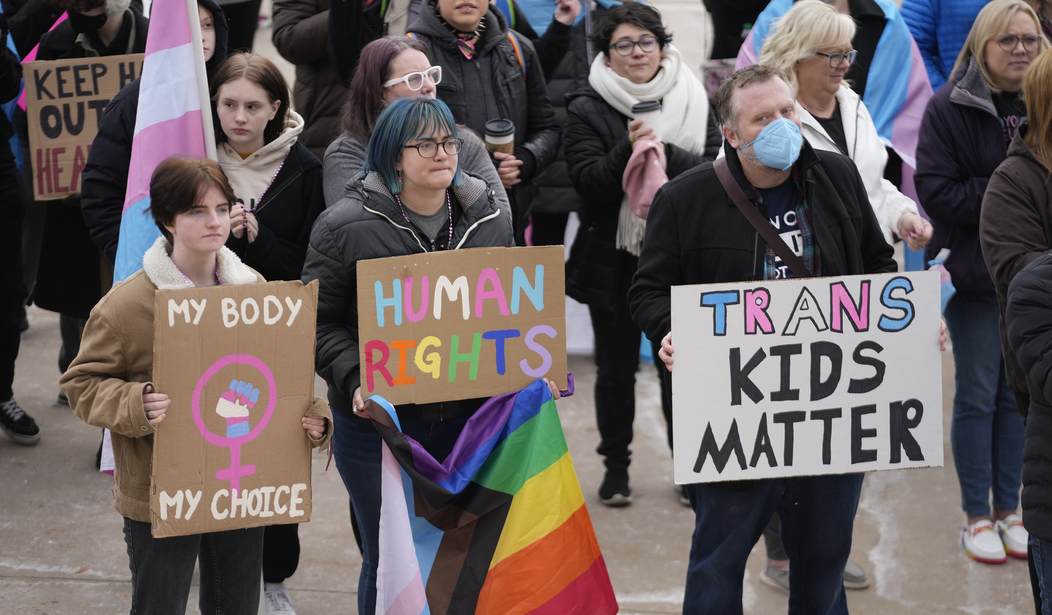An Oklahoma district judge has upheld the state’s controversial ban on “gender-affirming care” treatments for children suffering from gender dysphoria. Senate Bill 613 prohibits the use of puberty blockers, hormone treatments, and surgery on minors and makes it a felony for medical professionals to prescribe these treatments.
The move comes amid a national debate surrounding transgender children and the best methods for treating their mental health issues. Several red states have passed legislation outlawing these types of procedures on kids, which has sparked a fierce backlash from the progressive left, which argues that “gender-affirming care” is beneficial to these children.
The ruling came in response to a group of individuals trying to block the enforcement of the law.
An Oklahoma judge has rejected a request from a group of medical providers and families with transgender children to temporarily block the state from enforcing its felony ban on gender-affirming health care for minors, ruling that prohibiting such care is “rationally related to legitimate state interests.”
Oklahoma District Judge John Frederick Heil III ruled late Thursday that the law, Senate Bill 613, “is not an outright ban on gender affirming care” because it does not restrict access to surgeries or doses of testosterone or estrogen for transgender adults.
“Instead, SB 613 requires only that, to the extent an individual desires to utilize certain physiological procedures to treat the psychological condition of gender dysphoria, he or she must wait until a certain age to do so,” Heil, an appointee of former President Trump, wrote in his opinion.
Republican Gov. Kevin Stitt made a similar argument in favor of the measure. “Here in Oklahoma, we protect our kids. Plain and simple,” he remarked, further insisting that the law is a bulwark against “dangerous, permanent sex change surgeries.”
Stitt made the ban a priority of this year’s legislative session. He called on state lawmakers last year to ban “permanent gender transition surgeries and therapies” in 2023 while signing a bill passed during a special session to withhold federal funds from OU Health if the hospital system continued providing gender-affirming care to minors.
In May, five Oklahoma families with transgender adolescents and a doctor who treats transgender youths sued the state in federal court, arguing Senate Bill 613 discriminates against transgender people and violates the right of parents to make decisions on behalf of their children.
The judge’s ruling met with criticism from organizations and individuals insisting that “gender-affirming care” should be allowed for the parents of children with gender dysphoria.
The American Civil Liberties Union (ACLU) argued that “denying transgender youth equality before the law and needlessly withholding the necessary medical care their families and their doctors know is right for them has caused and will continue to cause serious harm.”
The organization also declared that it is “appealing this decision that is completely out of step with all other federal trial courts.”
Still, the law has ardent defenders. State Rep. Julie Daniels (R-Bartlesville) argued that the measure “is about protecting the most vulnerable among us from making a life-changing, irreversible decision using the mind of a child.”
The law will likely see other challenges from the ACLU and other organizations.
The issue became a hot-button topic when people realized that medical facilities and public schools were encouraging minors to undergo these treatments to “transition” to the opposite sex. Indeed, many school districts have adopted policies requiring teachers and members of school staff to conceal issues pertaining to gender identity from the parents of children suffering from gender dysphoria.
Despite what proponents of “gender-affirming care” have contended, new studies show that these methods do not benefit the mental health of children. In many cases, it actually causes more damage, especially when these individuals become adults and later regret going through the process. The debate will continue, but with more detransitioners telling their stories and holding medical facilities accountable, it would not be surprising to see the rest of the nation turn against this practice.













